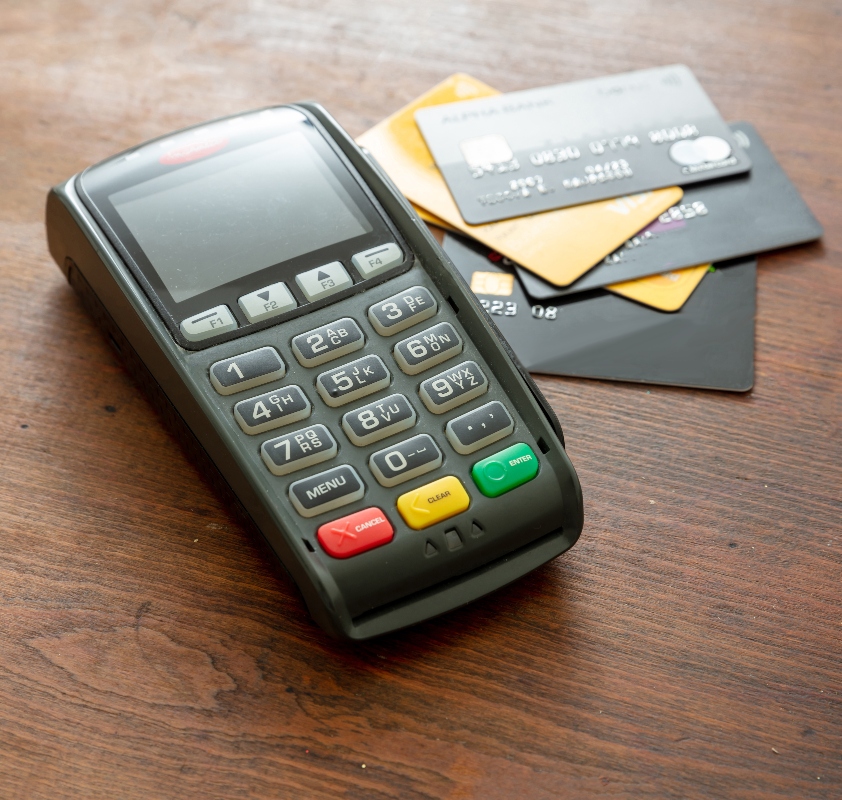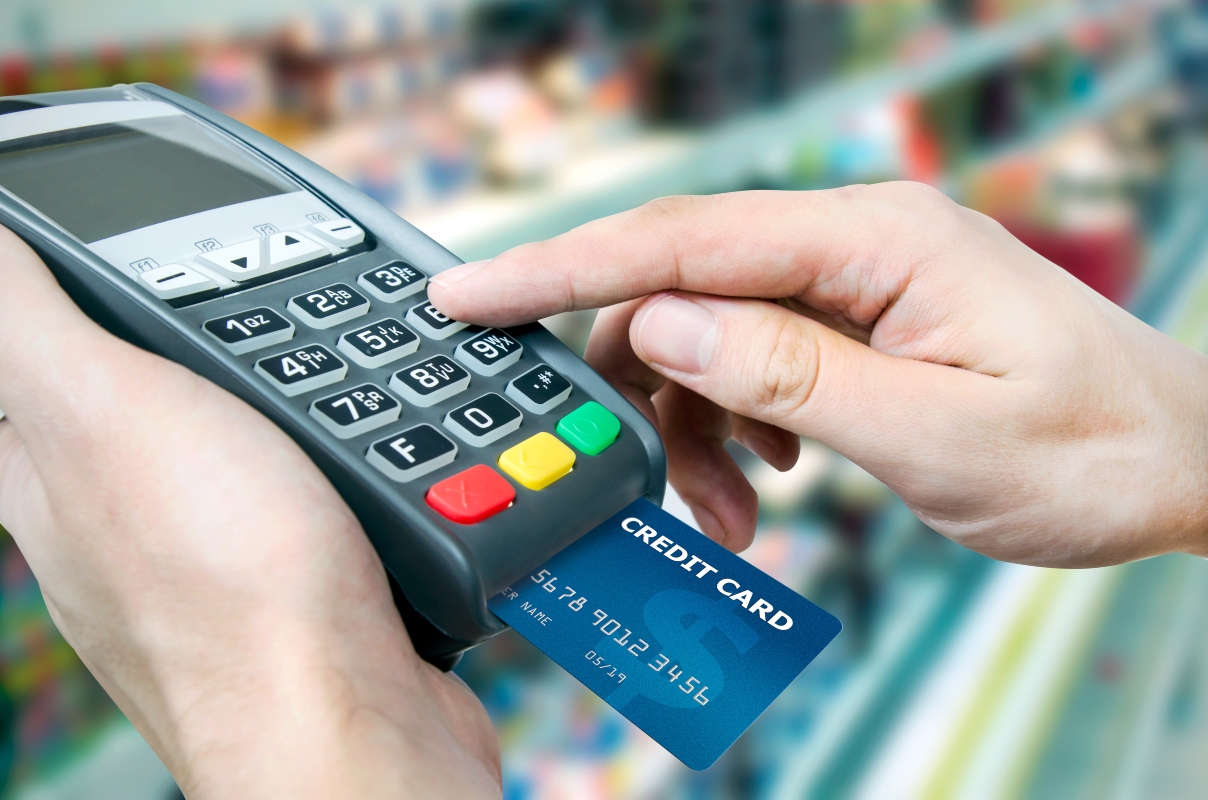Some shops only allow you to use a card if you meet their minimum card payment amount - this can be extremely off-putting to customers.
Say you don’t carry cash. You want to buy a £2 coffee, and there’s a £5 card limit. Do you spend the extra £3, or go somewhere else?
To be fair, it’s understandable why there’s a minimum payment. All card transactions come with card processing fees, making it seem like it's pointless to process such small value transactions.
We think it’s a bad idea to set a minimum amount for card payments. Firstly, we’re going to explain whether you’re actually allowed to set a minimum card payment, before trying to convince you that doing so is a bad idea!

What Is a Minimum Card Payment?
A minimum card payment is the lowest amount a transaction can be if paying by credit or debit card.
Typically this fee is as low as £5, but can be as high as much as £20. Large chain retailers such as supermarkets, department stores and fast food restaurants don't have a minimum card payment limit in place. You usually see it within independent retailers like corner shops, boutiques and cafes.
Is It Legal To Set A Minimum Card Payment?
In the UK, it is perfectly legal to set a minimum card payment. However, it is illegal to charge customers extra to cover the cost of your card processing fees, also known as “surcharging”.
To deter merchants from setting a minimum payment, card networks such as Visa and Mastercard have core rules in place. They will penalise you or suspend your account for setting a minimum card fee.
Let’s see what the main card networks policies are:
- Visa’s Core Rules state: “A Merchant must not establish a minimum or maximum Transaction amount as a condition for honouring a Card.”
- With Mastercard’s rules also stating that “A Merchant must not require, or indicate that it requires, a minimum or maximum Transaction amount to accept a valid and properly presented Mastercard or Maestro Card.”
- American Express has no issue with a minimum transaction fee, but it is still illegal to have a credit card surcharge in place.
However, it’s not just card network rules to be mindful of. Card reader providers also have legislation in place to prevent merchants from setting a minimum card payment. Especially when they are bound to the rules of the card providers they have been designed to accept.
Remember the customer is always right - so don’t underestimate them! Some customers may also be merchants themselves, or educated in the way of card payments, and could recognise your ill practise and report you.

Why Do Businesses Sometimes Set a Minimum Card Payment?
Businesses will set a minimum transaction limit for a variety of reasons. Occasionally, it will be in the name of encouraging the customer to make a bigger purchase, resulting in higher earnings. However, this isn’t the only justification offered.
Merchants pay a set rate against each transaction. Usually a percentage of the transaction, plus a fixed fee set by the card reader provider. By setting a minimum card payment limit, they attempt to avoid paying processing fees on small amounts of money.
However, this percentage remains fixed no matter the transaction value. The charge for merchants is proportionate to the amount they take in, so there’s no point rejecting smaller transaction sums.
Merchants would be better off shopping around for the best card readers, especially those that offer the lowest transaction fee available, saving both you and your customers money.
Why You Should Avoid Setting a Minimum Card Payment
Customers.
It’s as simple as that. As a business, you should always be striving to put your customers first, and having a minimum card payment limit does not do that.
What happens when a customer wants to buy something but the value doesn’t meet your minimum payment?
Scenario 1: They need to find an ATM (which are few and far between these days) to lift cash as an alternative to meeting the minimum spend. On their way, your customer is more likely to source a competitor who doesn’t charge a minimum spend.
Scenario 2: They will refuse to purchase additional goods in the name of a minimum card spend. Most customers are either looking for specific items or are sticking to a budget so won’t buy more than they need to.
Neither of these scenarios are ideal for the customer or merchant, and would likely deter them from returning to your business. Dealing with cash is a longer process for both merchant and customer, a contactless payment (with no minimum spend!) is accepted and completed within seconds.
Repeat custom is more likely when there are no restrictions and it’s more valuable than saving a few pennies with a minimum card payment limit.

Conclusion
Setting a minimum amount for card payment isn’t illegal, but it’s against the rules of most major card processors (Visa and MasterCard).
If you regularly deal with small transactions, you’re far better with a merchant service that charges you a percentage of a sale.
“But my card transaction fees are still too expensive!”
We hear you. Thankfully, they don’t have to be.
Cardswitcher helps you to find the best card processing service for your business. With us, you could save up to 40% on your card processing fees. So don’t wait! Check out our card processing fee comparison engine now.


